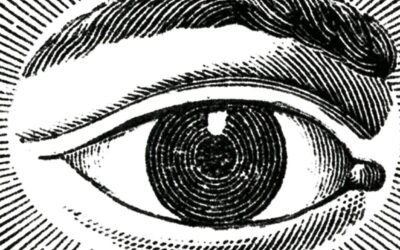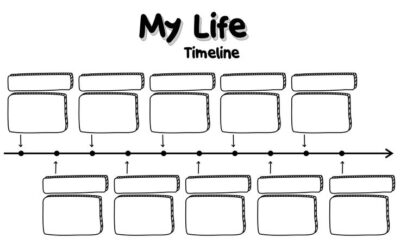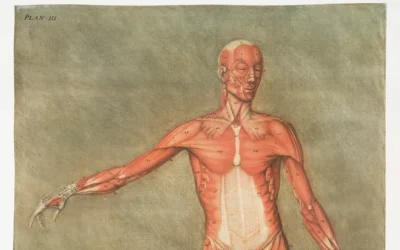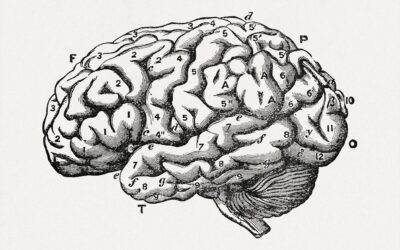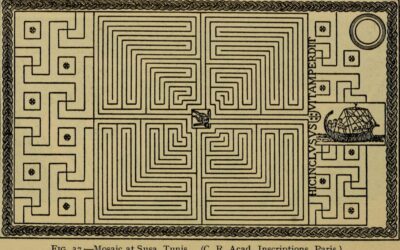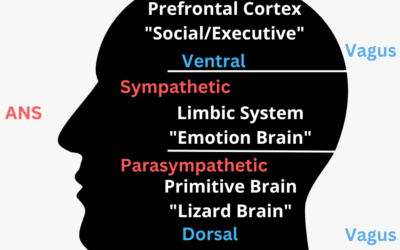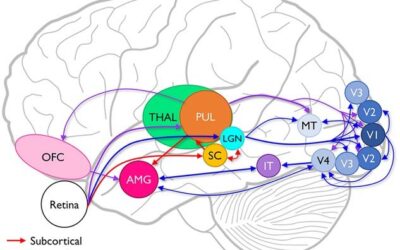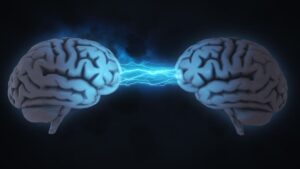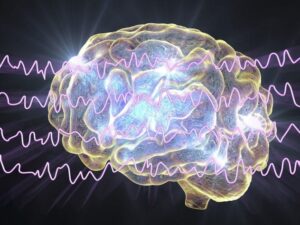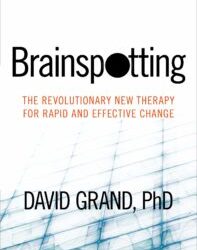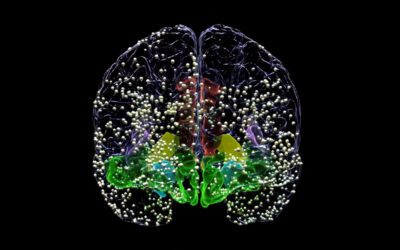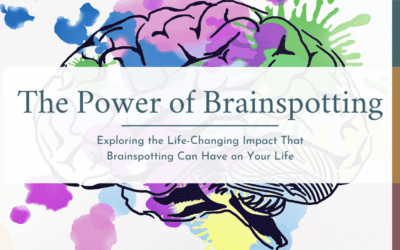In the landscape of addiction recovery, a quiet revolution is taking place. While traditional 12-step programs continue to serve as crucial foundations for early sobriety, a growing number of treatment professionals are recognizing that lasting recovery requires something deeper—a transformation at the soul level that goes far beyond behavior modification. Corey Gamberg, Executive Director of Rockland Recovery Treatment Centers in Massachusetts, represents this new wave of thinking. His approach integrates...
Mental Health in Alabama: Addressing Unique Challenges and Building Statewide Resilience
Comprehensive Mental Health Resources for the Heart of Dixie
Welcome to Taproot Therapy Collective’s dedicated focus on mental health challenges, resources, and innovations specific to Alabama residents. As Birmingham’s leading integrative therapy practice, we understand that mental health care in Alabama requires deep appreciation for regional culture, rural access challenges, historical trauma, and the unique strengths and struggles that define life in the Heart of Dixie.
Understanding Alabama’s Mental Health Landscape
Our Mental Health in Alabama blog category examines the distinctive factors that influence psychological wellbeing across our state, from the rural communities of the Black Belt to the urban centers of Birmingham, Mobile, and Huntsville. Alabama faces unique mental health challenges including limited rural access to care, higher rates of trauma and adverse childhood experiences, economic stressors, and cultural factors that both support and complicate mental health treatment.
This approach builds on the comprehensive therapeutic services detailed on our main services page, where we provide specialized trauma treatment, EMDR, Brainspotting, and somatic therapies that address the complex mental health needs of Alabama residents while honoring Southern cultural values and community traditions.
Alabama-Specific Mental Health Challenges and Statistics
Alabama consistently ranks among the states with highest rates of adverse childhood experiences (ACEs), with nearly 70% of adults reporting at least one traumatic childhood experience. These statistics reflect generational patterns of trauma, poverty, and limited access to mental health resources that require comprehensive, culturally informed therapeutic approaches.
Rural mental health access represents a critical challenge, with over 60% of Alabama counties designated as mental health professional shortage areas. Many Alabama residents travel hours for specialized mental health care or go without treatment entirely, contributing to higher rates of suicide, substance abuse, and untreated depression and anxiety disorders.
Economic factors significantly impact mental health across Alabama, with poverty rates, unemployment, and underemployment creating chronic stress that exacerbates mental health conditions. Understanding how economic insecurity affects psychological wellbeing helps inform treatment approaches that address both individual symptoms and systemic stressors affecting entire communities.
Research from University of Alabama at Birmingham School of Medicine demonstrates how social determinants of health including housing instability, food insecurity, and limited healthcare access contribute to mental health disparities across Alabama, requiring integrated approaches that address both psychological symptoms and social support needs.
Cultural Considerations for Alabama Mental Health
Southern Culture and Mental Health Stigma creates both challenges and resources for mental health treatment in Alabama. Traditional Southern values of self-reliance, family loyalty, and religious faith can create barriers to seeking professional help while simultaneously providing strong community support networks and spiritual resources for coping with difficulties.
Understanding how concepts of masculinity, femininity, and family honor influence help-seeking behavior helps therapists provide more effective and culturally responsive treatment that honors Southern cultural values while addressing mental health needs. Our approach recognizes that effective therapy in Alabama requires cultural competency and appreciation for regional identity and values.
Religious and Spiritual Resources play central roles in Alabama communities, with high rates of church attendance and religious identification providing both mental health resources and potential sources of support or conflict. Understanding how different religious traditions approach mental health, family relationships, and personal struggles enhances therapeutic effectiveness while respecting spiritual commitments and community connections.
Historical Trauma and Collective Healing addresses how Alabama’s complex history including slavery, segregation, civil rights struggles, and ongoing racial tensions affects mental health across communities. Birmingham’s pivotal role in civil rights history creates unique opportunities for exploring collective trauma, resilience, and healing while addressing how historical events continue influencing contemporary mental health experiences.
Regional Mental Health Resources and Access
Birmingham as Mental Health Hub serves as Alabama’s primary center for specialized mental health services, with major medical centers, research institutions, and training programs providing advanced care options. Our comprehensive approach detailed in our about section emphasizes collaboration with regional healthcare systems to ensure clients receive coordinated, high-quality care.
Teletherapy Expanding Rural Access represents a crucial innovation for addressing Alabama’s geographic barriers to mental health care. Our specialized teletherapy services extend evidence-based treatment to underserved areas throughout Alabama, including dedicated programs for Auburn residents, Florence area communities, and Mobile region populations.
These teletherapy programs specifically address the unique mental health needs of different Alabama regions, from university communities facing academic stress to coastal areas dealing with weather-related trauma to rural communities struggling with economic challenges and social isolation.
Community Mental Health Centers across Alabama provide essential services for residents with severe mental illness, substance abuse disorders, and complex trauma histories. Understanding how community mental health systems work and building collaborative relationships with local providers enhances treatment coordination and ensures clients receive comprehensive care that addresses both immediate crisis needs and long-term recovery goals.
Alabama-Specific Mental Health Conditions and Treatment Approaches
Trauma and PTSD Treatment addresses high rates of trauma exposure in Alabama including military trauma (given significant veteran populations), domestic violence, child abuse, natural disasters, and community violence. Our specialized trauma treatment approaches including EMDR, Brainspotting, and Lifespan Integration provide effective interventions for complex trauma while honoring Southern cultural approaches to resilience and recovery.
Substance Abuse and Co-Occurring Disorders reflect Alabama’s ongoing struggles with opioid addiction, alcohol abuse, and prescription drug misuse that often accompany untreated mental health conditions. Understanding how substance abuse intersects with mental health requires integrated treatment approaches that address both psychological symptoms and addiction recovery while building on community support networks and spiritual resources.
Depression and Suicide Prevention addresses Alabama’s concerning suicide rates, particularly among rural populations, elderly residents, and young adults. Effective suicide prevention requires understanding cultural factors that both protect against and contribute to suicidal ideation while building community-based prevention and intervention strategies.
Anxiety and Stress-Related Disorders examines how economic uncertainty, social change, and cultural pressures contribute to anxiety disorders across Alabama populations. Treatment approaches must address both individual symptoms and environmental stressors while building on Southern cultural strengths including family support, community connection, and spiritual coping strategies.
Research and Innovation in Alabama Mental Health
Contemporary mental health research from Auburn University, University of Alabama, and University of South Alabama explores innovative approaches to rural mental health delivery, culturally responsive treatment methods, and technology-enhanced care that addresses Alabama’s unique challenges and population needs.
Collaborative research initiatives examine how telemedicine, mobile crisis services, and community-based interventions can improve mental health outcomes across Alabama while reducing costs and increasing accessibility. These studies inform policy development and program implementation that addresses systemic barriers to mental health care.
Partnership research with Alabama Department of Mental Health focuses on developing evidence-based programs that address Alabama’s specific mental health priorities including suicide prevention, trauma-informed care, and integrated treatment for co-occurring disorders while building on existing community strengths and resources.
Birmingham’s Role in Statewide Mental Health Leadership
As Alabama’s largest city and medical center, Birmingham plays crucial leadership roles in statewide mental health initiatives including provider training, research coordination, and policy development. Our participation in these broader efforts connects individual therapeutic work with systemic change efforts that improve mental health resources and access across Alabama.
Birmingham’s diverse population provides opportunities for developing and testing culturally responsive treatment approaches that can be adapted for implementation in other Alabama communities. Understanding how urban mental health innovations translate to rural settings helps ensure that evidence-based treatments reach all Alabama residents regardless of geographic location.
The city’s role as transportation and technology hub enables innovative service delivery models including teletherapy, mobile crisis services, and consultation programs that extend specialized expertise to underserved areas throughout Alabama.
Policy and Advocacy for Alabama Mental Health
Understanding Alabama’s mental health policy landscape helps therapists and clients navigate insurance systems, access state resources, and advocate for improved services and support. Current policy priorities include Medicaid expansion, rural access improvement, and integration of mental health services with primary healthcare delivery.
Advocacy efforts focus on reducing stigma, improving insurance coverage for mental health services, and developing comprehensive approaches to addressing social determinants of health that significantly impact psychological wellbeing across Alabama communities.
Professional advocacy includes supporting mental health provider training, supervision, and continuing education programs that ensure Alabama residents have access to high-quality, culturally competent mental health services regardless of geographic location or economic circumstances.
Connect with Our Alabama Mental Health Community
For deeper exploration of mental health challenges and resources specific to Alabama, check out more on the Discover + Heal + Grow Taproot Therapy Collective blog and podcast where we regularly feature Alabama mental health professionals, researchers, and advocates working to improve services and outcomes across our state.
Subscribe to our YouTube channel for discussions on Alabama mental health challenges and innovations, listen to our podcast for interviews with Alabama mental health leaders and researchers, follow us on Instagram for Alabama mental health resources and awareness information, connect on LinkedIn for professional Alabama mental health networking and resources, find us on Google Maps for comprehensive mental health services serving Alabama residents, and join our Reddit community for discussions on Alabama mental health challenges, resources, and advocacy efforts.
Featured Article Categories
Our Mental Health in Alabama blog includes Rural Access and Teletherapy addressing geographic barriers to mental health care, Cultural Competency exploring Southern culture and mental health intersections, Trauma and Resilience examining Alabama-specific trauma patterns and recovery resources, Policy and Advocacy covering Alabama mental health legislation and systems change, Research and Innovation highlighting Alabama-based mental health studies and programs, Community Resources providing comprehensive guides to Alabama mental health services, Suicide Prevention addressing Alabama’s suicide rates and prevention strategies, and Substance Abuse Integration examining co-occurring disorders and treatment approaches specific to Alabama populations.
Specialized Alabama-Focused Programs
We offer monthly Alabama Mental Health Advocacy Groups for individuals interested in policy and systems change, quarterly Rural Mental Health Outreach Programs providing consultation and training for underserved areas, specialized Cultural Competency Training for mental health professionals serving Alabama populations, and Alabama Trauma Recovery Intensives addressing state-specific trauma patterns and community healing approaches.
Start Your Alabama Mental Health Journey Today
Understanding and addressing mental health challenges specific to Alabama requires cultural competency, regional expertise, and commitment to improving access and outcomes for all residents. Our Birmingham-based team at Taproot Therapy Collective combines deep knowledge of Alabama culture and mental health landscape with evidence-based treatments detailed in our psychology and research section to provide comprehensive care that honors both individual needs and community context.
Contact Taproot Therapy Collective: 📍 2025 Shady Crest Dr. Suite 203, Hoover, AL 35216
📞 (205) 598-6471
🌐 www.GetTherapyBirmingham.com
🎧 Podcast: gettherapybirmingham.podbean.com
We provide comprehensive mental health services that address Alabama-specific challenges while honoring Southern cultural values and community strengths for effective, culturally responsive therapeutic care.
Discover + Heal + Grow with Taproot Therapy Collective – Birmingham’s comprehensive resource for Alabama mental health understanding, advocacy, and culturally responsive therapeutic care.
Meta-Cognition: Observing Conciousness Itself to Heal Trauma
Evidence Based Practice and Research Psychology, Recovering from Abuse, Self Help and Personal Development, Somatic Experiencing In Alabama, Trauma Treatment in Alabama
"Pain - has an Element of Blank - It cannot recollect When it begun - or if there were A time when it was not - It has no Future - but itself - Its Infinite realms contain Its Past - enlightened to perceive New Periods - of Pain." -Emily Dickinson, Pain - has an Element of Blank (1890) In this haunting stanza, Emily Dickinson captures the timeless, all-consuming nature of deep emotional pain. When we are in the throes of anxiety, depression, or trauma, it can feel as though this state has no beginning and no end....
The Neuroscience of Trauma and Psychotherapy: An Integrative Perspective
Evidence Based Practice and Research Psychology, Neuroscience and the Brain for Therapists, Recovering from Abuse, Trauma Treatment in Alabama
Key Points: Different psychotherapy modalities target distinct brain networks and memory systems, leading to varying treatment outcomes for different types of trauma. The triune brain model (MacLean) and research on emotional memory (LeDoux) and lateralization of brain function (Gazzaniga) provide a neuroscientific framework for understanding the impact of trauma on the brain. Personality factors and individual differences in brain organization, as revealed by qEEG brain mapping, influence the subjective...
New Frontiers in Brain-Based Therapies for Trauma
Evidence Based Practice and Research Psychology, Lifespan integration in Alabama, Recovering from Abuse, Therapeutic Approaches and Techniques for Therapists, Therapy and Crisis Intervention for College Students in Alabama, Trauma Treatment in Alabama, Trauma, Depth Psychology, and Social Work, Understanding Neurodivergence and Neurodiversity in Therapy
What are Newer Brain-Based Therapies for Trauma? In recent years, there has been a surge of interest and research into novel therapies that target the brain and nervous system to treat the effects of psychological trauma. These emerging approaches leverage new insights from neuroscience to heal trauma in ways that go beyond traditional talk therapy. By working with the brain and body, they aim to resolve trauma stored in the nervous system and transform painful memories. This article will explore several of the...
How Alabama’s New Laws Could Affect Therapists
Therapy and Crisis Intervention for College Students in Alabama, Trauma Treatment in Alabama, Trauma, Depth Psychology, and Social Work
What Do Alabama's Abortion Laws Mean for Therapists and Mandated Reporters? Recent changes to Alabama’s abortion laws have significantly altered the legal landscape surrounding reproductive rights, particularly in redefining personhood to include embryos and fetuses at all stages of development. This could have far reaching implications for how anyone providing or recieving mental health care. What is Mandated Reporting? Mandated reporting laws require certain professionals, including therapists, to report...
The Multifaceted Psychological Power of Color
Therapeutic Approaches and Techniques for Therapists, Trauma Treatment in Alabama
How Does Color Effect Brain Function? What is Color? Color is a ubiquitous and powerful psychological force, influencing human experience and behavior in myriad ways. This paper explores the multifaceted effects of color, focusing on four key areas: somatic memory, trauma and implicit memory, brain function as measured by QEEG, and the behavioral impact of bright colors in advertising and consumer psychology. Drawing on a wide range of studies, we examine how color can evoke physical sensations, trigger...
Depression and Autism:
Mental Health and Psychotherapy Resources in Alabama, Trauma Treatment in Alabama, Understanding Neurodivergence and Neurodiversity in Therapy
Navigating the Intersection of Mood and Neurodiversity What is Depression with Autism? Depression and Autism Spectrum Disorder (ASD) are distinct conditions that can co-occur. Research suggests that individuals with autism are at a higher risk of developing depression, with some studies indicating rates as high as 40%. When someone has both depression and autism, we refer to this unique neurological profile as Depression-Autism. The Diagnostic Evolution of Depression-Autism Historically, depression in autistic...
Anxiety Disorders and ADHD:
Mental Health and Psychotherapy Resources in Alabama, Trauma Treatment in Alabama, Understanding Neurodivergence and Neurodiversity in Therapy
Unraveling the Tangle of Worry and Inattention What is Anxiety with ADHD? Anxiety Disorders and Attention Deficit Hyperactivity Disorder (ADHD) are distinct conditions that frequently co-occur. Research suggests that up to 50% of individuals with ADHD also experience an anxiety disorder. When someone has both an anxiety disorder and ADHD, we refer to this unique neurological profile as Anxiety-ADHD. The Diagnostic Evolution of Anxiety-ADHD Historically, the restlessness and difficulty concentrating seen in...
Sensory Processing Disorder with Autism and ADHD:
Trauma Treatment in Alabama, Trauma, Depth Psychology, and Social Work, Understanding Neurodivergence and Neurodiversity in Therapy
Navigating a Multi-Sensory World What is SPD with Autism and ADHD? Sensory Processing Disorder (SPD), Autism Spectrum Disorder (ASD), and Attention Deficit Hyperactivity Disorder (ADHD) are distinct neurodevelopmental conditions that can co-occur. When an individual experiences all three, we refer to this unique neurological profile as SPD-Autism-ADHD. The Diagnostic Evolution of SPD-Autism-ADHD Historically, sensory issues were often seen as a component of autism or ADHD rather than a distinct condition. Recent...
Borderline Personality Disorder and Bipolar Disorder:
Mental Health and Psychotherapy Resources in Alabama, Recovering from Abuse, Trauma Treatment in Alabama, Trauma, Depth Psychology, and Social Work, Understanding Neurodivergence and Neurodiversity in Therapy
Navigating Emotional Intensity What is BPD with Bipolar Disorder? Borderline Personality Disorder (BPD) and Bipolar Disorder are distinct conditions that can co-occur in some individuals. Studies suggest that up to 20% of individuals with BPD also meet criteria for Bipolar Disorder. When someone has both BPD and Bipolar Disorder, it creates a unique psychological profile that we'll refer to as BPD-Bipolar. The Diagnostic Evolution of BPD-Bipolar Historically, the intense mood swings seen in BPD were often...
The Evolutionary Roots of PTSD: The Lizard Screaming in Your Brainstem
Anthropology and Evolutionary Psychology for Therapy, History of Psychotherapy, Jungian Therapy and Depth Psychology, Ketamine for Trauma and PTSD, Psychology, Recovering from Abuse
Resolving the Conflict Between Lizard and Mammal Brains The human brain is an astonishingly complex and metabolically expensive organ. Weighing in at just three pounds, it consumes a whopping 20% of the body's total energy budget [1]. This high cost is a testament to the brain's incredible processing power, which has allowed humans to become the most intelligent and adaptable species on the planet. But the human brain is not a monolithic entity. Rather, it is a product of millions of years of evolution,...
The Neuroscience and Phenomenology of Brainspotting
Alternative Medicine and Holistic Health, Anthropology and Evolutionary Psychology for Therapy, Brainspotting in Alabama: Revolutionary Trauma Therapy for Deep Healing, Neuroscience and the Brain for Therapists, Therapy Resources for Alabama, Trauma Treatment in Alabama
An In-Depth Exploration of What Brainspotting Does in the Brain Brainspotting is a relatively new psychotherapy approach that combines elements of psychodynamic, somatic, and mindfulness-based therapies to facilitate deep emotional healing and trauma resolution [1]. Developed by David Grand in 2003, brainspotting operates on the premise that "where you look affects how you feel" [2]. By guiding the client's visual focus to specific external positions (brainspots), the therapist can help access and process...
Looking at the Therapy on the Sopranos from a Jungian Lens
Therapy Resources, Tips and Tools, Trauma Treatment in Alabama, Trauma, Depth Psychology, and Social Work
What if Tony Soprano had gone to a Jungian Analyst? The Sopranos is one of my favorite shows. In fact I often re-watch it while I write these blog posts and so I decided to write some blog posts on the show itself. I have said before that I think the shows enduring popularity is a result of its ability to show the macrocosm of a power structure and the microcosm of the individual psychologies that inhabit it. There is just one problem. Over the years I have drifted more post Jungian in my therapeutic orientation....
Meeting the Diverse Needs of Birmingham Alabama’s Community
Therapy Resources, Tips and Tools, Trauma Treatment in Alabama, Understanding Neurodivergence and Neurodiversity in Therapy
Where Should Young People Get Therapy in Birmingham Alabama? Birmingham, Alabama is a city steeped in rich history, cultural diversity, and a tapestry of religious traditions. This multifaceted backdrop makes it an ideal setting for innovative and culturally-responsive therapy and counseling, which is exactly what Taproot Therapy Collective aims to provide. Diverse Cultural and Religious Landscape Birmingham's population reflects a diverse mix of races, ethnicities, and religions. Approximately 70% of the city's...
Mindfulness and Mental Health
Therapy Resources, Tips and Tools, Trauma Treatment in Alabama, Trauma, Depth Psychology, and Social Work
How Present-Moment Awareness Can Transform Your Life Mindfulness, the practice of bringing non-judgmental awareness to the present moment, has emerged as a powerful tool for promoting mental health and well-being. Psychologists, therapists, and counselors are increasingly incorporating mindfulness-based interventions into their work with clients struggling with issues like anxiety, depression, trauma, ADHD, eating disorders, and more. The Benefits of Mindfulness Research has shown that regular mindfulness...
Understanding DARVO: Recognizing Abuse Tactics
Recovering from Abuse, Therapy Resources, Tips and Tools, Trauma Treatment in Alabama, Trauma, Depth Psychology, and Social Work
Understanding DARVO: Recognizing Abuse Tactics in Relationships and Politics What does D.A.R.V.O. mean? DARVO is an acronym that stands for "Deny, Attack, and Reverse Victim and Offender." It refers to a common strategy employed by abusers and manipulators in which they flip the script by denying their abusive behavior, attacking the credibility and character of their victims, and positioning themselves as the true victim. By understanding the history and dynamics of DARVO, we can better recognize these toxic...
Experience the Healing Power of Brainspotting at Taproot Therapy in Vestavia Hills, Alabama
Brainspotting in Alabama: Revolutionary Trauma Therapy for Deep Healing, Therapy Resources, Tips and Tools, Trauma Treatment in Alabama, Trauma, Depth Psychology, and Social Work
Taproot: Birmingham's Brainspotting Pioneers Are you struggling with complex PTSD, dissociative disorders, or treatment-resistant trauma? Brainspotting therapy at Taproot in Vestavia Hills, Alabama offers a powerful, brain-based path to healing. Our therapists are the most highly trained brainspotting practitioners in the Birmingham area, offering an integrative approach that combines brainspotting with parts work, somatic therapy, and experiential techniques for deep, transformative healing. At Taproot Therapy,...
Epigenetics: How Environment and Lifestyle Shape Brain Health and Behavior
Therapy Resources, Tips and Tools, Trauma Treatment in Alabama, Understanding Neurodivergence and Neurodiversity in Therapy
Can You Inherit Trauma? Epigenetics, the study of how environmental factors and lifestyle choices can influence gene expression without altering the underlying DNA sequence, has emerged as a critical area of focus in brain-based medicine. This dynamic field of research has shed light on the complex interplay between nature and nurture, revealing how our experiences, habits, and surroundings can shape brain health and behavior across the lifespan. This article explores the principles of epigenetics and how...
Cognitive Distortions: Identifying and Challenging Negative Thinking Patterns
Recovering from Abuse, Self Help and Personal Development, Therapy Resources, Tips and Tools, Trauma Treatment in Alabama, Trauma, Depth Psychology, and Social Work
What Are Cognitive Distortions? Cognitive distortions are irrational or exaggerated thought patterns that can contribute to negative emotions and maladaptive behaviors. By learning to recognize and challenge these distortions, individuals can improve their mental health and develop more balanced, realistic ways of thinking. This article explores common cognitive distortions and provides strategies for overcoming them. Common Cognitive Distortions All-or-nothing thinking: Seeing situations in black-and-white...
The Healing Power of Humor: Why Laughter Really Is the Best Medicine
Therapy Resources, Tips and Tools, Trauma Treatment in Alabama
Does Humor Heal Trauma? Should my therapist be funny? In the face of life's challenges and stressors, humor and laughter can be powerful tools for promoting physical, emotional, and social well-being. From boosting the immune system to strengthening relationships, the benefits of laughter are far-reaching and well-documented. This article explores the science behind the healing power of humor and provides practical tips for incorporating more laughter into your daily life. The Physical Benefits of Laughter Stress...
Attachment Theory: Understanding Relationship Patterns and Dynamics
How to Know Your Attachment Style Attachment theory, developed by psychologist John Bowlby, provides a framework for understanding how early childhood experiences shape our patterns of relating to others throughout life. By exploring attachment styles and their impact on adult relationships, we can gain valuable insights into our own behavior and learn strategies for building healthier, more secure connections with others. The Origins of Attachment Theory Bowlby's observations: Bowlby noted that infants have an...
Understanding Dyslexia: Challenges, Strengths, and Strategies for Success
Recovering from Abuse, Self Help and Personal Development, Therapy Resources, Tips and Tools, Trauma Treatment in Alabama, Trauma, Depth Psychology, and Social Work, Understanding Neurodivergence and Neurodiversity in Therapy
How to Know if I Have Dyslexia? Dyslexia is a learning difference that affects reading, writing, and spelling skills. Despite its challenges, individuals with dyslexia often possess unique strengths and can thrive with the right support and strategies. This article aims to shed light on dyslexia, dispel common misconceptions, and provide guidance for individuals with dyslexia and their support systems. What is Dyslexia? Definition: Dyslexia is a neurological condition that impacts the way the brain processes...
ADHD: Recognizing Symptoms and Seeking Effective Treatment
Trauma Treatment in Alabama, Understanding Neurodivergence and Neurodiversity in Therapy
Do I have ADHD? Attention-deficit/hyperactivity disorder (ADHD) is a neurodevelopmental condition characterized by inattention, hyperactivity, and impulsivity. While often diagnosed in childhood, ADHD can persist into adulthood, affecting daily functioning and quality of life. This article explores the symptoms of ADHD and the available treatment options for managing the condition. Symptoms of ADHD Inattention: Difficulty sustaining focus, following instructions, and completing tasks; easily distracted and...
Recognizing and Understanding Autism in Adulthood
Therapy Resources, Tips and Tools, Trauma Treatment in Alabama, Trauma, Depth Psychology, and Social Work, Understanding Neurodivergence and Neurodiversity in Therapy
Am I Autistic? Autism spectrum disorder (ASD) is a neurodevelopmental condition that affects social interaction, communication, and behavior. While often associated with childhood, autism can also be diagnosed in adults. This article aims to shed light on the signs, challenges, and support strategies for adults with autism. Signs of Autism in Adults Social difficulties: Challenges in reading social cues, understanding unwritten social rules, and engaging in reciprocal conversations. Communication differences:...
Understanding Demisexuality: Exploring the Gray Area Between Asexuality and Allosexuality
Therapy Resources, Tips and Tools, Trauma Treatment in Alabama, Trauma, Depth Psychology, and Social Work, Understanding Neurodivergence and Neurodiversity in Therapy
What is Demisexuality? Demisexuality is a sexual orientation on the asexual spectrum, characterized by the need for a strong emotional bond before experiencing sexual attraction. For demisexual individuals, physical appearance and sexual desire are not the primary drivers of attraction; instead, a deep, emotional connection is necessary for sexual feelings to develop. This article aims to shed light on demisexuality and provide insights into this often misunderstood sexual orientation. Key Characteristics of...
Finding Quality Rehabilitation Centers Near You for Substance Abuse Treatment
Recovering from Abuse, Therapy Resources, Tips and Tools, Trauma Treatment in Alabama, Understanding Neurodivergence and Neurodiversity in Therapy
What Rehabilitation Centers Really Work? Seeking treatment for substance abuse is a crucial step towards recovery and improved mental health. However, finding a quality rehabilitation center that meets your unique needs can be a daunting task. This article provides guidance on how to locate and evaluate rehab centers near you, ensuring that you or your loved one receives the best possible care and support. Factors to Consider When Searching for a Rehab Center Location: Consider whether you prefer a local facility...
The Path to Recovery: An Overview of Addiction Treatment Options
Interviews and Case Studies, Recovering from Abuse, Self Help and Personal Development, Therapy Resources, Tips and Tools, Trauma Treatment in Alabama, Trauma, Depth Psychology, and Social Work
What Type and Length of Addiction Treatment is Best? Addiction is a complex and chronic condition that requires professional treatment and ongoing support to achieve and maintain recovery. With the variety of treatment options available, it can be challenging to navigate the landscape of addiction care. This article provides an overview of the most common addiction treatment approaches, empowering individuals and families to make informed decisions about their path to recovery. Levels of Addiction Treatment...
Alcohol Abuse and Addiction: Recognizing the Signs and Seeking Help
Recovering from Abuse, Therapy Resources, Tips and Tools, Trauma Treatment in Alabama
How to Know When an Alcohol User Needs Professional Help Alcohol abuse and addiction are serious mental health concerns that can have devastating consequences for individuals, families, and communities. Recognizing the signs of alcohol abuse and seeking timely help are crucial steps in the path to recovery. This article explores the warning signs of alcohol abuse and provides guidance on how to seek support for yourself or a loved one struggling with addiction. Signs of Alcohol Abuse and Addiction Increased...
Harnessing the Power of Positive Affirmations for Self-Improvement
Recovering from Abuse, Self Help and Personal Development, Therapy Resources, Tips and Tools, Trauma Treatment in Alabama, Trauma, Depth Psychology, and Social Work
How to make Positive Affirmations in Therapy? Positive affirmations are simple yet powerful statements that can help to reprogram our subconscious mind, challenge limiting beliefs, and promote self-growth and improvement. By regularly repeating affirmations that align with our goals and values, we can cultivate a more positive and empowering mindset and take proactive steps towards creating the life we desire. This article explores the science behind positive affirmations and provides guidance on how to...
Unlocking Self-Discovery: 50 Powerful Journaling Prompts for Personal Growth
Recovering from Abuse, Self Help and Personal Development, Therapy Resources, Tips and Tools, Trauma Treatment in Alabama
How do you Journal for Therapy? Journaling is a powerful tool for self-discovery, reflection, and personal growth. By engaging in regular journaling practice, you can gain a deeper understanding of your thoughts, emotions, and behaviors, and cultivate greater self-awareness and resilience. This article presents 50 powerful journaling prompts designed to unlock your potential for self-discovery and personal transformation. Prompts for Gratitude and Appreciation List three things you are grateful for today and why....
The Benefits of Meditation: A Beginner’s Guide to Starting a Meditative Practice
Guided Meditations for Therapy, Recovering from Abuse, Self Help and Personal Development, Therapy Resources, Tips and Tools, Trauma Treatment in Alabama
What is Meditation? Meditation has gained widespread popularity in recent years as a powerful tool for promoting mental health, reducing stress, and enhancing overall well-being. This beginner's guide explores the numerous benefits of meditation and provides practical tips for starting your own practice. Benefits of Meditation Stress Reduction: Meditation has been shown to reduce stress and anxiety by promoting relaxation and decreasing levels of cortisol, the primary stress hormone. Emotional Well-being: Regular...
Schizophrenia: Dispelling Myths and Understanding the Disorder
Self Help and Personal Development, Therapy Resources, Tips and Tools, Trauma Treatment in Alabama, Understanding Neurodivergence and Neurodiversity in Therapy
Do I have Schizophrenia? Schizophrenia: Dispelling Myths and Understanding the Complex Mental Disorder What is Schizophrenia? Schizophrenia is a severe, chronic mental disorder characterized by disturbances in thought, perception, emotions, and behavior 1. It affects approximately 1% of the global population and typically emerges in late adolescence or early adulthood 2. While often misunderstood, schizophrenia is not a "split personality" but rather a complex condition that causes a disconnect from reality. The...
Finding the Right Therapist: A Guide to Locating Quality Mental Health Services Near You
Self Help and Personal Development, Therapy Resources, Tips and Tools, Trauma Treatment in Alabama, Understanding Neurodivergence and Neurodiversity in Therapy
How to pick the right therapist Seeking therapy is a courageous step towards improving your mental health and overall well-being. However, finding the right therapist can feel overwhelming, especially when you're already dealing with emotional challenges. This guide aims to help you navigate the process of locating quality mental health services near you. Understanding Your Needs Before starting your search, take some time to reflect on your reasons for seeking therapy and what you hope to gain from the process....
Comprehensive Treatment Strategies for Major Depressive Disorder
Recovering from Abuse, Therapy Resources, Tips and Tools, Trauma Treatment in Alabama, Trauma, Depth Psychology, and Social Work, Understanding Neurodivergence and Neurodiversity in Therapy
How to get Help for Depression Major depressive disorder (MDD) is a serious mental health condition characterized by persistent feelings of sadness, hopelessness, and a loss of interest in activities. It can significantly impact an individual's daily functioning and quality of life. This article explores comprehensive treatment strategies for MDD, combining various approaches to achieve the best possible outcomes. Pharmacotherapy Antidepressants: Antidepressant medications, such as selective serotonin reuptake...
Navigating Treatment Options: The Most Effective Medications for Anxiety and Depression
Trauma Treatment in Alabama, Trauma, Depth Psychology, and Social Work, Understanding Neurodivergence and Neurodiversity in Therapy
How to get Medication for Anxiety? When it comes to treating anxiety and depression, medication can be an essential component of a comprehensive treatment plan. While therapy and lifestyle changes are also important, the right medication can help alleviate symptoms and improve overall functioning. This article explores some of the most effective medications for anxiety and depression. Medications for Anxiety Selective Serotonin Reuptake Inhibitors (SSRIs): SSRIs, such as fluoxetine (Prozac), sertraline (Zoloft),...
Recognizing the Signs: A Guide to Anxiety and Depression Symptoms
Trauma Treatment in Alabama, Trauma, Depth Psychology, and Social Work, Understanding Neurodivergence and Neurodiversity in Therapy
How to know if you have anxiety? Anxiety and depression are two of the most common mental health disorders, affecting millions of people worldwide. Recognizing the symptoms of these conditions is crucial for seeking timely treatment and support. This article provides an overview of the signs and symptoms associated with anxiety and depression. Anxiety Symptoms Excessive worry or fear Restlessness or feeling on edge Difficulty concentrating Irritability Sleep disturbances Physical symptoms (e.g., rapid heartbeat,...
An Introduction to Lifespan Integration Therapy
Lifespan integration in Alabama, Recovering from Abuse, Trauma Treatment in Alabama, Trauma, Depth Psychology, and Social Work, Understanding Neurodivergence and Neurodiversity in Therapy
What is Lifespan Integration Therapy? Lifespan Integration (LI) is a gentle, body-based therapeutic method that aims to heal without re-traumatizing. Developed by Peggy Pace, a clinical psychologist, LI is founded on the understanding that the mind-body system is equipped with a natural ability to heal itself, given the right conditions and support. LI therapy works by helping clients to access and integrate unresolved traumatic memories and experiences that are believed to underlie many mental health issues....
Lifespan Integration Techniques and Protocols
Lifespan integration in Alabama, Trauma Treatment in Alabama, Trauma, Depth Psychology, and Social Work, Understanding Neurodivergence and Neurodiversity in Therapy
The Basic Lifespan Integration Protocol The Basic Lifespan Integration Protocol is the foundational technique used in LI therapy. It involves guiding the client through their timeline, from birth to the present moment, while applying specific prompts and techniques to facilitate integration and healing. Book with a Lifespan Integration Therapist Here Other Articles on Lifespan Integration Part1 Part 2 Part 3 Part 4 The basic protocol typically follows these steps: Grounding and resourcing: The therapist guides...
The Science Behind Lifespan Integration: Healing Through Neural Integration
Trauma Treatment in Alabama, Trauma, Depth Psychology, and Social Work, Understanding Neurodivergence and Neurodiversity in Therapy
The Role of Neural Networks in Lifespan Integration At the heart of Lifespan Integration therapy is the understanding that the brain is a complex, interconnected network of neural pathways and circuits. These neural networks are formed through our experiences, beginning in utero and continuing throughout our lifespan. When we experience trauma or adverse life events, especially in childhood, it can disrupt the normal integration of these neural networks. Traumatic experiences can become "stuck" or frozen in time,...
Lifespan Integration for Specific Mental Health Concerns
Interviews and Case Studies, Lifespan integration in Alabama, Trauma Treatment in Alabama, Trauma, Depth Psychology, and Social Work, Understanding Neurodivergence and Neurodiversity in Therapy
Lifespan Integration for Anxiety and Panic Disorders Anxiety and panic disorders are characterized by chronic, debilitating feelings of fear, worry, and unease. These feelings are often rooted in early, unresolved experiences of threat, danger, or vulnerability. Lifespan Integration can be a powerful tool for resolving the underlying traumas and attachment wounds that fuel anxiety and panic. By processing these experiences and linking them to more adaptive, resourced states, LI can help to rewire the neural...
Somatic Experiencing: Myths, Misconceptions, and FAQs
Recovering from Abuse, Somatic Experiencing In Alabama, Trauma Treatment in Alabama, Understanding Neurodivergence and Neurodiversity in Therapy
Somatic Experiencing and Lifespan Integration Myth: Somatic Experiencing is Just Another Relaxation Technique One common misconception about Somatic Experiencing is that it is simply a relaxation technique, akin to practices like progressive muscle relaxation or guided imagery. While SE can indeed promote a sense of relaxation in the body, it is a much more comprehensive approach to trauma healing and nervous system regulation. Unlike purely relaxation-based techniques, SE works directly with the physiological...
The Brain-Body Connection: How Somatic Experiencing Works
Somatic Experiencing In Alabama, Trauma Treatment in Alabama, Trauma, Depth Psychology, and Social Work
The Impact of Trauma on the Brain and Body Trauma can have a profound impact on both the brain and the body. When an individual experiences a traumatic event, the body's natural stress response is activated, releasing a flood of stress hormones such as cortisol and adrenaline. This response prepares the body for fight, flight, or freeze, enabling the individual to respond to the perceived threat. However, when the traumatic event is overwhelming or prolonged, the stress response can become dysregulated, leading...
Understanding Somatic Experiencing: A Mind-Body Approach to Healing Trauma
Recovering from Abuse, Self Help and Personal Development, Somatic Experiencing In Alabama, Trauma Treatment in Alabama, Trauma, Depth Psychology, and Social Work
What is Somatic Experiencing? Somatic Experiencing (SE) is a body-oriented therapeutic approach developed by Dr. Peter Levine to address the effects of trauma. It is based on the understanding that trauma is not just a psychological phenomenon but also has a significant physiological impact on the body. SE focuses on the biological responses to trauma and aims to release traumatic shock, which is stored in the body, leading to the alleviation of trauma symptoms. The approach is grounded in the observation of...
The 12 Archetypes: How They Shape Our Lives as Consumers, Voters, and Romantic Partners
Trauma Treatment in Alabama, Trauma, Depth Psychology, and Social Work
Archetypes Across Culture and Advertising and Myth The concept of archetypes, as popularized by psychologist Carl Jung, has found its way into various aspects of our lives, from the way we consume products to how we vote and even how we navigate our romantic relationships. In her book "Awakening the Heroes Within," Carol Pearson introduces a model of 12 archetypes that have become widely recognized in popular culture. These archetypes are: The Innocent, The Lover, The Orphan, The Creator, The Hero, The Jester,...
Southern Gothic Literature and the Jungian Psyche
The Dark Mirror of the Soul In the humid, kudzu-draped landscapes of the American South, a literary tradition emerged that would plumb the depths of the human psyche like few others. Southern Gothic literature, with its haunting tales of decay, madness, and the supernatural, serves as a powerful lens through which we can examine the complexities of the human mind. From the perspective of Jungian psychology, these stories offer rich territory for exploring concepts like the shadow, collective unconscious, and the...
The Photography of Spider Martin: Capturing the Struggle for Civil Rights
Psychology of Poets and Writers, Trauma Treatment in Alabama, Trauma, Depth Psychology, and Social Work
Who Was Spider Martin? Who was Spider Martin? In times of great societal upheaval and injustice, the power of visual storytelling can be a catalyst for change, awareness, and healing. The photographs of Spider Martin, particularly his documentation of the Civil Rights Movement and the Selma to Montgomery marches, stand as a testament to the transformative impact of photography in the face of trauma and inequality. Spider Martin, born James Martin in 1939, was an American photographer who gained recognition for...
African American Resilience and Creative Expression: Combating Generational Trauma and Reconnecting with Cultural Roots
Anthropology and Evolutionary Psychology for Therapy, Recovering from Abuse, Trauma Treatment in Alabama, Trauma, Depth Psychology, and Social Work
The African American experience has been marked by a history of trauma, oppression, and displacement, resulting in a sense of rootlessness and disconnection from African myths and traditions. However, in the face of these challenges, African Americans have demonstrated remarkable resilience and creativity, finding innovative ways to express their identity, process trauma, and build community through various forms of artistic expression. This paper will explore how African Americans have combated generational...
African American Folk Arts and Traditions: Resilience, Resistance, and Roots
Trauma Treatment in Alabama, Trauma, Depth Psychology, and Social Work
African American Folk Arts as a Means to Heal Inter-Generational Trauma African American folk arts and traditions have played a vital role in shaping the cultural landscape of the United States. These practices, which include music, quilting, storytelling, and various forms of craftsmanship, have served as powerful means of expression, community-building, and resilience in the face of centuries of oppression, trauma, and displacement. By tracing the roots of these traditions back to Africa and exploring their...
The Labyrinth in Jungian Psychology: Traversing the Winding Path of Individuation
Depth Psychology Approaches and Techniques, Phenomenology and Existential Psychology, Psychology of Buildings and Architecture, Psychology of Mystics, Gurus, and Spiritual Philosophers, Trauma Treatment in Alabama, Trauma, Depth Psychology, and Social Work
What is a Labyrinth? "The labyrinth is an ancient symbol that relates to wholeness. It combines the imagery of the circle and the spiral into a meandering but purposeful path." - Dr. Sandra Wasko-Flood Read This Article as a Pdf: What is a Labyrinth Main Points and Key Ideas: The labyrinth as an archetypal symbol in human culture and psychology Jungian interpretations of the labyrinth as a representation of the individuation process The labyrinth's relevance in contemporary therapeutic and spiritual practices The...
Maurice Merleau-Ponty: Embodied Perception and Existential Phenomenology
Christian Mysticism in Therapy, Jungian Therapy and Depth Psychology, Metamodernism and Deconstruction, Phenomenology and Existential Psychology, Psychology of Buildings and Architecture, Psychology of Modernism Post Modernism and the Meta Modern, Psychology of Mystics, Gurus, and Spiritual Philosophers, Psychotherapy Biographies: Historical Figures in the History of Psychology, Trauma Treatment in Alabama, Trauma, Depth Psychology, and Social Work
Who was Maurice Merleau-Ponty? Maurice Merleau-Ponty (1908-1961) was a French philosopher and phenomenologist who made significant contributions to the fields of phenomenology, existentialism, and the philosophy of perception. His work bridged the gap between continental philosophy and the emerging fields of cognitive science and psychology, influencing subsequent thinkers in philosophy, psychology, and the social sciences. Merleau-Ponty's theories on embodied cognition, the lived body, and the primacy of...
Ernst Cassirer: Philosopher of Symbolic Forms and Cultural Theory
Jungian Therapy and Depth Psychology, Phenomenology and Existential Psychology, Philosophy for Therapists, Psychology of Buildings and Architecture, Psychology of Mystics, Gurus, and Spiritual Philosophers, Psychotherapy Biographies: Historical Figures in the History of Psychology, Trauma Treatment in Alabama, Trauma, Depth Psychology, and Social Work
Who was Ernst Cassirer? Ernst Cassirer (1874-1945) was a German-Jewish philosopher who made significant contributions to the fields of epistemology, philosophy of science, intellectual history, and cultural theory. His work on symbolic forms and his neo-Kantian approach to understanding human culture and cognition have had a lasting impact on various disciplines, including philosophy, anthropology, linguistics, and cognitive science. Cassirer's theories have influenced subsequent thinkers and continue to be...
The Illusion of Progress: How Psychotherapy Lost Its Way
Phenomenology and Existential Psychology, Psychology of Mystics, Gurus, and Spiritual Philosophers, Trauma Treatment in Alabama, Trauma, Depth Psychology, and Social Work
Key Points: Psychotherapy is facing an identity and purpose crisis in the era of market-driven healthcare, as depth, nuance, and the therapeutic relationship are being displaced by cost containment, standardization, and mass-reproducibility. This crisis stems from a shift in notions of the self and therapy's aims, shaped by the rise of neoliberal capitalism and consumerism. The "empty self" plagued by inner lack pursues fulfillment through goods, experiences, and attainments. Mainstream psychotherapy largely...
Attention Pupils! Windows to the Soul; Extensions of the Brain
Neuroscience and the Brain for Therapists, Trauma Treatment in Alabama, Trauma, Depth Psychology, and Social Work
How Therapists can Use the Pupil to Heal Trauma One of the reasons that I left EMDR and started to pursue brainspotting as the primary brain based medicine that I use as a provider was because of pupil dilation. Years ago when I was just starting out as a therapist I noticed that pupil dilation patterns were a good indicator of how well a patient was processing trauma. I would use a patient's pupil dilation and movement to see how well EMDR was working. During EMDR patients don’t talk much until the end of...
How does Brainspotting and EMDR work in the Brain?
Free Resources for Therapists in Private Practice, Neuroscience and the Brain for Therapists, Trauma Treatment in Alabama
What is it that Brainspotting is doing in the brain? One of the questions that we get asked the most is how brain based medicine like brainspotting, EMDR, and ETT work in the brain. Like many discoveries before it we know often discover THAT something works and then later have to discover WHY it works. Antipsychotics are a good example of this. For years there was a dopamine theory of schizophrenia hypothesizing that medication effecting dopamine levels were some how stopping psychosis. After a decade of research...
Book Review of of Aztec Philosophy by James Maffie
Mythology and Therapy, Psychology of Buildings and Architecture, Psychology of Mystics, Gurus, and Spiritual Philosophers, Symbolism and Meaning in Psychotherapy, Trauma Treatment in Alabama, Trauma, Depth Psychology, and Social Work
Unlocking the Mysteries of Aztec Philosophy When Hernán Cortés and his expedition arrived in the Aztec capital, Tenochtitlán, in 1519, they were initially received with curiosity and even reverence by the Aztec emperor, Montezuma II.The Aztecs, interpreting the arrival of the Spanish as a potentially significant event, offered gifts and welcomed them with hospitality. In one encounter, Cortés asked Montezuma about his beliefs, inquiring about the Spanish understanding of God. Montezuma's response was cryptic and...
How Therapists Can Recognize the onset of Schizophrenia in the Clinic
Trauma Treatment in Alabama, Trauma, Depth Psychology, and Social Work
How to Recognize Schizophrenia Schizophrenia is a complex mental health disorder that significantly impacts an individual's thoughts, emotions, and behavior. By gaining a comprehensive understanding of the condition and implementing effective strategies, mental health professionals can provide better support and improve the quality of life for individuals living with schizophrenia. Early Signs and Diagnosis Recognizing the early signs of schizophrenia is crucial for prompt intervention. Common indicators include:...
Interview with Psychotherapist Win Schepps on Why Children Need to Know it’s Ok to Cry
Interviews and Case Studies, Trauma Treatment in Alabama, Trauma, Depth Psychology, and Social Work
Interview with Winston Schepps 🌟📚 Meet Win Scheppes: A Lifelong Friend, Mentor, and Dedicated Social Worker in Birmingham Alabama at 86! 🤝💼 Discover the inspiring story of Win Scheppes, a remarkable social worker who continues to make a difference in people's lives well into his 86th year. With unwavering passion, he exclaims, "I love doing therapy so damn much," showcasing his unrelenting commitment to his profession. For an incredible 57 years, he has served his community from his Homewood office,...
David Tacey Interview on Carl Jung, Mysticism, Comparative Religion and the Politics of Mythology
Phenomenology and Existential Psychology, Psychology of Buildings and Architecture, Trauma Treatment in Alabama, Trauma, Depth Psychology, and Social Work
Exploring the Depths of Jungian Psychology: An Interview with David Tacey Buy Tacey's Books on Amazon! God's and Diseases The Jung Reader The Post Secular Sacred The Darkening Spirit How to Read Jung Jung and Spirituality Religion as Metaphor Jung and The New Age The Spirituality Revoloution Remaking Men The Edger of the Sacred Re: Enchantmernt In a fascinating interview with Joel Blackstock from the Taproot Therapy Collective podcast, David Tacey, a renowned Australian public intellectual, writer, and...
What is the Difference in QEEG Brain Mapping, Trans Cranial Magnetic Stimulation (TCMS), Neurofeedback (MCNF), Neurostimulation, and Biofeedback?
Neuroscience and the Brain for Therapists, Trauma Treatment in Alabama, Trauma, Depth Psychology, and Social Work
What is the difference between Types of Neuromodulation? All the new neuromodulation modalities can be confusing to tell apart. How are they all different, what is their history, and how can they help you. Did you enjoy this article? Checkout the podcast here: https://gettherapybirmingham.podbean.com/ What is qEEG Brain Mapping? Quantitative Electroencephalogram (qEEG) Brain Mapping is a valuable diagnostic test used to evaluate patients with various neurological and psychological conditions. qEEG Brain Mapping...
Peak Neuroscience is now offering neurostimulation and q-EEG brain mapping at Taproot Therapy!
Neuroscience and the Brain for Therapists, Trauma Treatment in Alabama, Trauma, Depth Psychology, and Social Work
We are excited to announce we will be offering qEEG Brain Mapping and Neurostimulation with Peak Neuroccience! You can register for a special rate on the first 10 sessions if get on the waitlist before they open. You can read more about brain mapping and q-EEG below. Did you enjoy this article? Checkout the podcast here: https://gettherapybirmingham.podbean.com/ Unlocking Your Brain's Potential with Quantitative EEG (QEEG) Brain Mapping Quantitative EEG (QEEG) brain mapping is a cutting-edge technique that...
The Body Keeps the Score 2? ; The Path Forward for Trauma Treatment
Free Resources for Therapists in Private Practice, Neuroscience and the Brain for Therapists, Psychology Book Reviews and Non Fiction, Therapy Resources, Tips and Tools, Trauma Treatment in Alabama, Trauma, Depth Psychology, and Social Work
What if Bessel van der Kolk wrote a sequel to his influential book on trauma today? Did you enjoy this article? Checkout the podcast here: https://gettherapybirmingham.podbean.com/ e If anyone is familiar with the book The Body Keeps the Score, by world renowned physician Bessel van der Kolk, the title of this article is obvious hyperbole. I have no idea if he would or what Bessel van der Kolk would write as a sequel to The Body Keeps the Score. I am sure his publishers have offered him an enormous cash advance...
Karen Horney
Psychotherapy Biographies: Historical Figures in the History of Psychology, Trauma Treatment in Alabama, Trauma, Depth Psychology, and Social Work
Who was the female psychoanalyst and what do her theories say about trauma and personality? Did you enjoy this article? Checkout the podcast here: https://gettherapybirmingham.podbean.com/ Karen Horney was a German psychoanalyst. Her career came into prominence in the nineteen twenties when she formed theories on human attachment and neurosis that split from Freud’s key ideas. Horney’s theory of personality development and individuation are still highly relevant to modern theories of personality, attachment...
How do I become a therapist?
Trauma Treatment in Alabama, Trauma, Depth Psychology, and Social Work
How much does it cost to become a therapist? How do I become a therapist? Becoming a Mental Health Practitioner in Alabama: Requirements, Costs, and Pathways Key Points and Summary: This is the most common question that we get. Don't worry we have an answer for you! What is the difference in a psychotherapist and a psychiatrist? What are the different types of therapists? Psychiatrists and Nurse Practitioners can prescribe medication. A psychiatrist is a licensed medical doctor. They are licensed by the AMA. They...
Karen Horney Article 4/4
Trauma Treatment in Alabama, Trauma, Depth Psychology, and Social Work
Karen Horney Moving Away From People Karen Horney was a German psychoanalyst. Her career came into prominence in the nineteen twenties when she formed theories on human attachment and neurosis that split from Freud’s key ideas. Horney’s theory of personality development and individuation are still highly relevant to modern theories of personality, attachment psychology and psychological trauma. Horney observed that children deploy three different coping styles during the time they are individuating from the...
Karen Horney Part 3/4
Trauma Treatment in Alabama, Trauma, Depth Psychology, and Social Work
Karen Horney Moving Against People Karen Horney was a German psychoanalyst. Her career came into prominence in the nineteen twenties when she formed theories on human attachment and neurosis that split from Freud’s key ideas. Horney’s theory of personality development and individuation are still highly relevant to modern theories of personality, attachment psychology and psychological trauma. This third part of a four part article will explore the moving against people personality style. In Horney’s theory of...
Karen Horney Part 2/4
Trauma Treatment in Alabama, Trauma, Depth Psychology, and Social Work
Karen Horney Part 2/4 Moving Towards People Karen Horney was a German psychoanalyst. Her career came into prominence in the nineteen twenties when she formed theories on human attachment and neurosis that split from Freud’s key ideas. Horney’s theory of personality development and individuation are still highly relevant to modern theories of personality, attachment psychology and psychological trauma. Horney observed that children deploy three different coping styles during the time they are individuating from...
Karen Horney Part 1/4
Trauma Treatment in Alabama, Trauma, Depth Psychology, and Social Work
Karen Horney Who was Karen Horney? Karen Horney was a German psychoanalyst. Her career came into prominence in the nineteen twenties when she formed theories on human attachment and neurosis that split from Freud’s key ideas. Horney’s theory of personality development and individuation are still highly relevant to modern theories of personality, attachment psychology and psychological trauma. Even though she is not well remembered, her work is as relevant as it was at the turn of the century. Applying her...
Everything you ever wanted to know about Brainspotting
Brainspotting in Alabama: Revolutionary Trauma Therapy for Deep Healing, Neuroscience and the Brain for Therapists, Therapy and Crisis Intervention for College Students in Alabama, Trauma Treatment in Alabama, Trauma, Depth Psychology, and Social Work
Everything You Ever Wanted to Know about Brainspotting Trauma activates our body’s fight or flight system making us experience strong emotional and physical reactions without a logical cause. This can make you feel angry or scared before you can intellectually understand why you react that way. Reexperiencing trauma is not a choice. It is an unconscious reaction. Brainspotting is a revolutionary new trauma processing tool to help you process this unconscious reaction. To heal trauma we need a tool that will let...
New Podcast Episode: Brainspotting Changed my Life
Brainspotting in Alabama: Revolutionary Trauma Therapy for Deep Healing, Discover + Heal + Grow: Taproot Therapy Collective Podcast Episodes, Neuroscience and the Brain for Therapists, Phenomenology and Existential Psychology, Trauma Treatment in Alabama, Trauma, Depth Psychology, and Social Work
Yellow garden spiders have a fat yellow abdomen slicked with yellow and black stripes. They weave a tiny white squiggle in the center of their webs. I stare at the faintly milky zig zag as it sways when wind moves the web and stirs the iris sepals it hangs between in my mothers garden. I am biting on the seam of injection molded red plastic in a 1980s baby walker. I ponder the way that Alabama red clay cakes in the grooves of my tennis shoe and poke it with a stubby finger and later a small twig. My dreams...
Ketamine for Trauma and PTSD – Interview with Dr. Harrison Irons from Southern Ketamine and Wellness
Interviews and Case Studies, Ketamine for Trauma and PTSD
https://www.youtube.com/watch?v=YKeR4siEbPc We work with many providers in the area to make sure that our clients receive the best care for their unique issue. One of the providers in the area of medical IV Ketamine is Southern Ketamine and Wellness. Dr. Harrison Irons was kind enough to sit down with us and explain the process for receiving ketamine treatment. Ketamine infusions are used in the treatment of PTSD, panic disorders, dissociation, dopamine disorders, mood disorders and the management of chronic...
How Do You Brainspot Patients with Severe Dissociation?
Brainspotting in Alabama: Revolutionary Trauma Therapy for Deep Healing, Neuroscience and the Brain for Therapists, Trauma Treatment in Alabama, Trauma, Depth Psychology, and Social Work
https://www.youtube.com/watch?v=9GkEckbtKAY Brainspotting Techniques for Severe Dissociation in Trauma Therapy Brainspotting is a powerful technique for treating severe trauma and PTSD. However, when working with patients experiencing severe dissociation, therapists may face unique challenges. This article explores effective strategies for applying Brainspotting to clients with severe dissociation, enhancing trauma therapy outcomes. Learn more about the basics of Brainspotting Understanding the Challenge Severe...
Brainspotting Changed My Life. Can It Change Yours?
Brainspotting in Alabama: Revolutionary Trauma Therapy for Deep Healing, Neuroscience and the Brain for Therapists, Self Help and Personal Development, Trauma Treatment in Alabama, Trauma, Depth Psychology, and Social Work
Yellow garden spiders have a fat yellow abdomen slicked with yellow and black stripes. They weave a tiny white squiggle in the center of their webs. I stare at the faintly milky zig zag as it sways when wind moves the web and stirs the iris sepals it hangs between in my mothers garden. I am biting on the seam of injection molded red plastic in a 1980s baby walker. I ponder the way that Alabama red clay cakes in the grooves of my tennis shoe and poke it with a stubby finger and later a small twig. My dreams were a...
The Most Common Images in Dreams and What They Mean
Trauma Treatment in Alabama, Trauma, Depth Psychology, and Social Work
Dreams are so commonly associated with therapy because dreams are such a purely projective experience. In a way dreams are our own personal mythology. Many times a patient will bring a recurring dream to therapy that has occurred for many years. Recurring dreams are attempts that your subconscious is making to “tell” you something. If you are not listening the dream will continue to recur, sometimes for years. Sometimes it takes me and a patient a while to chew on what the meaning of this recurring dream is, but...















